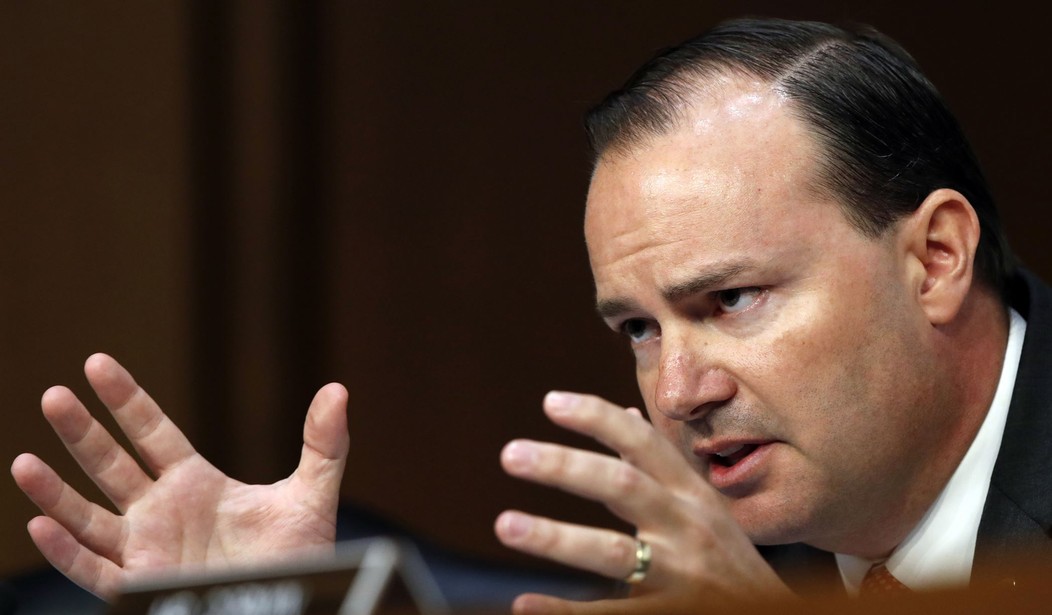Once again, representatives from the music monopolies are, to the dismay of songwriters, working the halls of Congress and the Justice Department, seeking to loosen their government-sanctioned restraints. And, once again, Senate Antitrust Subcommittee Chairman Sen. Mike Lee (R-Utah) doesn’t seem willing to stand for it.
Today, most companies with high market share have without question earned it for being more popular than their competitors, and they should in no way be penalized for improving the American people’s lives.
At the same time, however, Sen. Lee, being the deep thinker that he is, understands that there are notable exceptions to every rule and rightfully contends that antitrust policy should be neither liberal nor conservative, but rather about ensuring fairness and competition.
Which brings us to the hearing, titled Oversight of the Enforcement of Antitrust Laws, that he held on Wednesday.
Among the points that Sen. Lee subtly made to Makan Delrahim, the Assistant Attorney General of the DOJ’s Antitrust Division, is why in the world is the Justice Department seemingly focusing its review of 1,300 legacy antitrust judgments on the binding agreements that restrain the American Society of Composers, Authors, and Publishers (ASCAP) and Broadcast Music Inc. (BMI), which conservative songwriter Matt Fitzgibbons calls "two of the most anti-free market institutions in history?”
Of course, in his typical statesman-like demeanor, the Utah senator didn’t quite phrase his inquiry this pointedly, but his message was clear: while it’s never a bad idea to review the regulatory state, honing in on the ASCAP and BMI judgments seems wholly unnecessary.
Thanks in part to thoughtful, objective deliberation spurred by a hearing Sen. Lee held in the wake of the Obama administration’s examination of these decrees, the Justice Department ultimately decided that, for the sake of consumers and businesses, no modifications should be made to the agreements that have restrained them since the 1940s.
And yet, here the Justice Department goes again -- to the joy of the music monopolies, opening yet another review process less than two years later.
How does this make any sense?
The reason ASCAP and BMI monopolies came about is not due to private sector ingenuity and efficiency, but because of government interference in the economy.
Music publishers decided to pool all their music copyrights together into the hands of two large institutions, seemingly to increase their leverage and, consequently, cut down on songwriters’ royalty rates while greatly inflating their personal power and bank accounts.
Put another way, crony institutions have spun our nation’s important intellectual property laws, which are inherently monopolistic by nature, into a vehicle that enriches themselves at the expense of the creators they are intended to help.
There’s no hands-off fix to restraining these behemoths, less we get rid of intellectual property laws entirely, which would be as unfair to songwriters as it would be against members of Congress’ private property agendas.
That’s why the DOJ had ASCAP and BMI sign consent decrees, which mandate that they get their anti-competitive pricing under control or else face a rate court when disputes arise. These agreements have helped greatly in bringing fairness and responsibility back to the music industry.
In his column for Newsmax, conservative songwriter Matt Fitzgibbons continued, writing that “without these consent decrees, many up-and-coming songwriters will become embroiled in financial hardship” and that “the PROs and music publishers will win...at the expense of the music industry and economy at large.”
If this is true, why then is the Justice Department again reviewing the usefulness of the ASCAP and BMI decrees less than two years after their last examination?
That’s what Sen. Lee wants to know. On Wednesday, he inquired further, asking Delrahim, “What if anything, has changed in the music licensing market” - not over the last two years, but “since 1941, that would suggest these legacy decrees would no longer be required or current?”
In response, the Assistant Attorney General for the Antitrust Division quipped a recount of two generations worth of innovation in the music industry, citing the “8-track, CDs, streaming, downloads...”
Oddly, though, everything on Delrahim’s list dealt with the distribution side of the music industry, not the licensing side.
Indirectly, this proves the need to retain the consent decrees because, for over 70 years, almost nothing has changed about the music licensing market.
When coupled with how both institutions have been recently accused of violating or attempting to violate their guardrails – ASCAP even settled a $1.75 million civil contempt complaint with DOJ in 2016 – their seeming lack of motivation to innovate or do anything other than collect fat paychecks should reinforce the Justice Department’s commitment to keeping a watchful eye on these behemoths, not the other way around.
Thankfully for songwriters and the business community, the seemingly confused DOJ won’t be making this decision alone.
In response to a question from Sen. Orrin Hatch (R-Utah), Delrahim reaffirmed the Justice Department’s commitment to working and consulting with Congress before making a formal decision on the matter, just as the recently-passed Music Modernization Act (MMA) stipulates.
This added step will give Sen. Lee plenty of time to further his thoughtful dialogue with the Justice Department and save the free market mechanisms that currently power the industry today.
The task ahead of him will be far from a piece of cake, but in his own words, he wants to be the guy “that is willing to do things that are not easy but that need to be done.”
He succeeded in 2015-2016 during the last ASCAP/BMI review process, and so he can certainly do it again this time around with a familiar face at the helm of the Antitrust Division.
We here at Institute for Liberty are rooting for him.























Join the conversation as a VIP Member